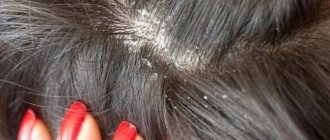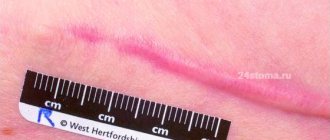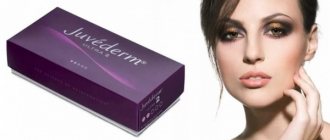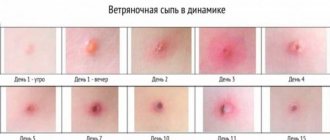How do the properties of skin affected by psoriasis change?
Image: brgfx / freepik.com Skin affected by psoriasis is characterized by accelerated renewal of the epidermis.
Normally, complete renewal of epidermal cells requires 3-4 weeks, but with psoriasis it takes only 4-7 days. Due to dehydration, the skin becomes dry and less elastic. In addition, it becomes prone to inflammation, which is why the plaques appearing on different parts of the body, especially on the arms, legs, torso and scalp, are reddish in color. Usually the plaques are covered with thin whitish scales. Psoriasis is a chronic disease with a wave-like course, usually occurring after 15 years. Photo: polubiatka / freepik.com
How should you wash skin affected by psoriasis?
Photo: madeaw_ec / freepik.com
While washing, try not to rub or stretch the skin.
It is better to give preference to showers rather than baths, as they dry out the skin. However, to relax, you can sometimes take a bath, but provided that it is not too long and the water is not very hot - a maximum of 37-38°C.
Soap should be neutral and fragrance-free.
After washing, do not try to remove dead skin on your elbows and knees.
Dry your skin with a towel very carefully, pressing it lightly against your body.
Thoroughly dry all folds and hidden areas of the skin. Pay special attention to the ear canals and the skin behind the ears, armpits, folds of skin under the mammary glands, the umbilical area and groin, as well as the skin between the toes.
What cosmetics and skin care products can be used for psoriasis?
Photo: freepik.com
For psoriasis, you can use mild alkaline soaps, deodorants, decorative cosmetics, etc. Products for sensitive or children's skin are best suited. If you are allergic to any perfumes, use the same hypoallergenic products that you used before the first exacerbation of psoriasis. It should be remembered that substances that cause allergic reactions may be included in air fresheners and fabric softeners.
If the skin in the armpits is inflamed, it can be washed with saline solution. Until the redness of the skin goes away, it is not recommended to use deodorants. Products containing alcohol and fragrances should be avoided.
You can use regular and waterproof cosmetics for eyes, lips and face.
To remove hair, it is better to use cold wax, which is less irritating to the skin than hot wax, depilatory creams or shaving, especially if the plaques are located on the legs and armpits.
Conclusions about tar soap and shampoos
Tar soap helps get rid of itching on the head and body; you can use it every day. It’s not difficult to choose: almost all tar soaps are of a natural composition and contain 10% tar , which is enough for a therapeutic effect.
Be careful with shampoos: they can cause allergic reactions. Most reviews, however, are also positive.
Read in detail about the healing properties of tar in the material: “Tar for psoriasis.”
If you are a supporter of natural treatment methods, be sure to check out the collection of recipes against psoriasis: “53 traditional methods for psoriasis.”
The most modern and effective treatment method: “Ultraviolet 311 nm against psoriasis.” In addition, this method is also natural, because the sun has long been considered a healer of many diseases .
What skin care products should I use for psoriasis?
For those suffering from psoriasis, it can be difficult to decide which makeup removers or body lotions are best to use, especially with the ever-growing range of these products available. In this section we will introduce you to what products are suitable for caring for sensitive skin of the face and body.
We will not provide an exhaustive list, but only some of the tools that you can use. Feel free to ask your pharmacist questions for more detailed information.
Psoriasis is a chronic disease that often has a wavy course. It is characterized by increased proliferation of keratinocytes, leading to hyperkeratosis (thickening of the stratum corneum of the epidermis), and the appearance of inflamed reddish plaques on the skin.
Photo: nina-kulagina / freepik.com
Basic methods for preventing psoriasis
Prevention of psoriasis consists of maintaining a healthy lifestyle and eliminating negative factors. At the same time, prevention has a fairly general form, that is, it allows you to prevent the development of other diseases, since the immune system is strengthened, and the body functions normally, the likelihood of qualitatively resisting environmental irritants increases. Prevention is a set of measures aimed at maintaining health in the body. There are several areas of influence that help prevent relapses: 1. High-quality skin care; 2. Stick to a diet; 3. It is recommended to have a relaxing massage; 4. Giving up bad habits; 5. Avoid stress and depression; 6. Prevent contact of caustic chemicals with skin and respiratory tract; 7. Maintain proper levels of microelements and vitamins in the body.
List of funds
The range of skin care products for psoriasis is far from complete, so it is important to choose products that do not cause irritation and do not have allergenic properties. Skin irritation can lead to Koebner phenomenon, i.e. the appearance of new plaques on irritated skin. Keratolytic products are commercially available to help remove scales, making it easier for topical medications (such as glucocorticoids and vitamin D derivatives) to reach and absorb damaged skin. Finally, for psoriasis it is necessary to use emollients (moisturizers) as they increase the elasticity of the skin and make it less rough and dry. Products based on water from thermal springs are especially suitable for this (they have emollient and anti-inflammatory properties).
Although skin care products cannot replace medications for topical treatment of psoriasis, both can complement each other. Skin care products help improve the overall condition of psoriasis patients by reducing discomfort and improving the appearance of the skin. Well-hydrated skin looks better and becomes softer, making psoriasis patients feel more confident. Thus, the use of these remedies can help in improving their quality of life.
Moisturizing body lotions
With psoriasis, the skin becomes dry and rough, and the stratum corneum of the epidermis thickens significantly. Violation of cellular processes leads to the fact that it becomes increasingly difficult for the skin to retain moisture, and it undergoes dehydration. Therefore, for psoriasis, it is recommended to use emollients that make the skin more flexible. Substances such as urea, amino acids and lactic acid, which absorb and retain water, give these products softening properties, and petroleum jelly, beeswax, vegetable oils and ceramides, which prevent skin dehydration, provide protective properties.
What are the best products to use?
It is better to use products labeled "O/W" (oil in water) on the packaging, which will not make your skin as oily as products labeled "W/O" (water in oil). Patients with psoriasis usually benefit from products designed for very dry skin and products intended for patients with atopic dermatitis. However, inflammation of the skin due to psoriasis does not always lead to dryness. Atopic dermatitis is a skin disease that manifests itself as eczema. Although some of its manifestations (especially redness and itching of the skin) resemble some forms of psoriasis, atopic dermatitis does not lead to a thickening of the stratum corneum of the epidermis.
Is there a special treatment method?
There is no specific treatment designed for different forms or stages (progressive or stable) of psoriasis. However, all patients tolerate moisturizers well, which are used after a shower and bath and have a long-lasting effect. It is believed that they can slow down the renewal of skin cells by half and prevent the appearance of new affected areas.
It is important to remember that emollients should not be used immediately before exposing the skin to UVA or UVB as they make it difficult for this radiation to reach the skin. However, they can be used the day before the procedure or the night before.
What products should I buy if I have itchy plaques?
Patients with psoriasis, especially those with itchy plaques, benefit from atopic dermatitis skin care products (rich in omega-3 fatty acids and essential fatty acids). Although a deficiency of fatty acids is characteristic of atopic dermatitis, there is every reason to believe that they are also necessary for psoriasis, since it is characterized by accelerated renewal of the epidermis.
Keratolytic agents
Skin keratinization is a normal process during which the skin is renewed by keratinocytes. Keratinocytes constitute the main cell population of the epidermis and produce keratin. With psoriasis, their functioning is disrupted, as a result of which the stratum corneum of the epidermis thickens and becomes covered with scales. Because the desquamation of keratinocytes in psoriasis is impaired, the skin becomes rougher. To combat hyperkeratosis (thickening of the skin), various substances are used, including salicylic acid, urea, and lactic acid.
Which substances are most effective?
Salicylic acid, which has a keratolytic and antiseptic effect, is an active ingredient that is part of many products used for skin irritation and peeling. Urea acts as a keratolytic and moisturizing agent. So-called alpha-hydroxy acids and fruit acids (such as glycolic and citric) have long been used in cosmetics for their exfoliating and smoothing effects, as they help remove excess dead cells. Stronger alpha hydroxyl acids (lower pH) have a more pronounced exfoliating effect. For psoriasis, only the weakest alpha-hydroxy acids, such as ammonium lactate, can be used. Keratolytics are produced in creams and emulsions; they help remove old epidermis and scales. These products are especially recommended for use on thickened and scaly skin of the body and scalp.
Most keratolytic products contain another active ingredient that helps moisturize the stratum corneum of the epidermis. These products can be used as a maintenance treatment to ensure normal skin moisture and prevent flare-ups. When the epidermis is damaged, these products soften it and make it more flexible.
Treatment for weeping skin lesions
In some cases, psoriasis is accompanied by weeping of the skin, in which the affected areas resemble bubbles located on its surface. These bubbles are filled with a colorless or yellowish transparent liquid. When they are damaged, spontaneously or due to scratching, the skin appears moist and may become crusty. In those places where the skin experiences constant friction, the bubbles reappear after they burst. The cause of weeping may be injury or inflammation.
Facial skin care
If your facial skin is not affected by psoriasis, you can use any product appropriate for your skin type to cleanse it, including soap, water, makeup remover, cleansing milk or gel. If you have acne, it is better to use mild cleansing gels. If your skin is dry, it is recommended to use soap-free cleansers, toilet soap and cleansing milk. If the skin is affected by psoriasis, it is necessary to carefully monitor its cleanliness, cleansing it morning and evening, and apply a moisturizer to it every day (or even several times a day if it is severely dry). Although there is no perfect product for psoriasis-affected skin, you should use products that do not cause irritation. You can treat your skin with mineral water vapor, which helps remove flakes and reduce redness. Dry your facial skin by gently blotting with a towel. If your skin is affected, you should avoid visiting beauty salons, and at home, avoid using masks and facial scrubs, which can increase irritation. In the absence of lesions, products with a wide variety of active ingredients (eg anti-aging) can be used if desired, as long as they are well tolerated. However, products containing vitamin A derivatives should be used with caution.
Scalp care
With psoriasis of the scalp, the skin in this area may thicken and become covered with red plaques covered with a large number of scales. To remove scales and reduce itching, it is necessary to use keratolytic shampoos that do not contain tar. The shampoo is applied to the roots of the hair and washed off after 5 minutes. After this, the hair should be rinsed thoroughly and then washed again with a shampoo suitable for this hair type. After the scalp is cleared of the lesion, it is necessary to use mild shampoos that prevent the appearance of dandruff. If you use the right shampoo, you can wash your hair daily. Keratolytic creams can be used to remove scales from the scalp. To achieve maximum effect, it is recommended to apply the cream to the scalp and leave for 2 hours, putting a shower cap on your head. In the absence of exacerbation of psoriasis, you can dye your hair, but do not wash it with hot water or dry it with hot air.
Sun protection
Although sunlight has beneficial effects on psoriasis skin, it must be protected from the harmful effects of UVA and UVB. Special sunscreens are produced for patients with atopic dermatitis, for example, Mustela SPF50 lotion for children with a high degree of protection.
Causes of psoriasis on the body
Psoriasis is a very unpleasant disease for everyone who suffers from it. The disease manifests itself in the form of red spots on the body, covered with white crusts, itching, burning, and inflammation of the skin.
The disease is explained by a violation of cell renewal. The body does not work correctly in this direction, too many skin cells are renewed - as a result, psoriasis appears.
Skin cells become more like scales, they become coarse, flake, and look like white spots on the skin, which attracts attention and brings moral and aesthetic inconvenience to the patient.
Most often, psoriasis is localized in visible places - elbows, knees, and maybe even on the face. Many people who have not encountered this disease fear that the patient is contagious.
In fact, this disease is not transmitted in any way, but the risk of having a child with psoriasis in an already sick parent increases noticeably, although a direct relationship has not yet been proven.
The main advice to patients is to eliminate symptoms by all available means, visit the doctor more often and follow all his recommendations. Then the disease will progress noticeably easier, all symptoms will disappear and the quality of life will increase.
Sources
- Ninosu N., Roehrich F., Diehl K., Peitsch WK., Schaarschmidt ML. Psoriasis care during the time of COVID-19: real-world data on changes in treatments and appointments from a German university hospital. // Eur J Dermatol - 2022 - Vol - NNULL - p.; PMID:33871361
- Thatiparthi A., Martin A., Liu J., Egeberg A., Wu JJ. Biologic Treatment Algorithms for Moderate-to-Severe Psoriasis with Comorbid Conditions and Special Populations: A Review. // Am J Clin Dermatol - 2022 - Vol - NNULL - p.; PMID:33861409
- RahimZahedi M., Torabizadeh C., Najafi Kalyani M., Moayedi SA. The Relationship between Spiritual Well-Being and Resilience in Patients with Psoriasis. // Dermatol Res Pract - 2022 - Vol2021 - NNULL - p.8852730; PMID:33854545
- Haftek M., Roy DC., Liao IC. ARTICLE: Evolution of Skin Barrier Science for Healthy and Compromised Skin. // J Drugs Dermatol - 2021 - Vol20 - N4 - p.s3-s9; PMID:33852254
- Svedbom A., Mallbris L., Larsson P., Nikamo P., Wolk K., Kjellman P., Sonkoly E., Eidsmo L., Lindqvist U., Ståhle M. Long-term Outcomes and Prognosis in New-Onset Psoriasis . // JAMA Dermatol - 2022 - Vol - NNULL - p.; PMID:33851956
- Adly M., Woo TE., Traboulsi D., Klassen D., Hardin J. Understanding Dermatologic Concerns Among Persons Experiencing Homelessness: A Scoping Review and Discussion for Improved Delivery of Care. // J Cutan Med Surg - 2022 - Vol - NNULL - p.12034754211004558; PMID:33818163
- Griffiths CEM., Armstrong AW., Gudjonsson JE., Barker JNWN. Psoriasis. // Lancet - 2022 - Vol397 - N10281 - p.1301-1315; PMID:33812489
- El-Komy MHM., Abdelnaby A., El-Kalioby M. How does COVID-19 impact psoriasis practice, prescription patterns, and healthcare delivery for psoriasis patients? A cross-sectional survey study. // J Cosmet Dermatol - 2022 - Vol - NNULL - p.; PMID:33811728
- Hung YT., Le PH., Kuo CJ., Tang YC., Chiou MJ., Chiu CT., Kuo CF., Huang YH. The Temporal Relationships and Associations between Cutaneous Manifestations and Inflammatory Bowel Disease: A Nationwide Population-Based Cohort Study. // J Clin Med - 2022 - Vol10 - N6 - p.; PMID:33810197
- Löfvendahl S., Norlin JM., Schmitt-Egenolf M. Prevalence and incidence of palmoplantar pustulosis in Sweden: a population-based register study. // Br J Dermatol - 2022 - Vol - NNULL - p.; PMID:33792911









